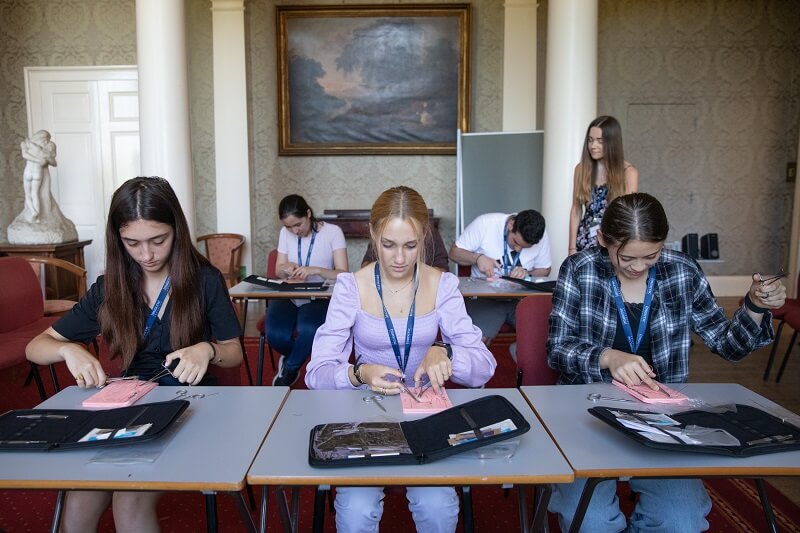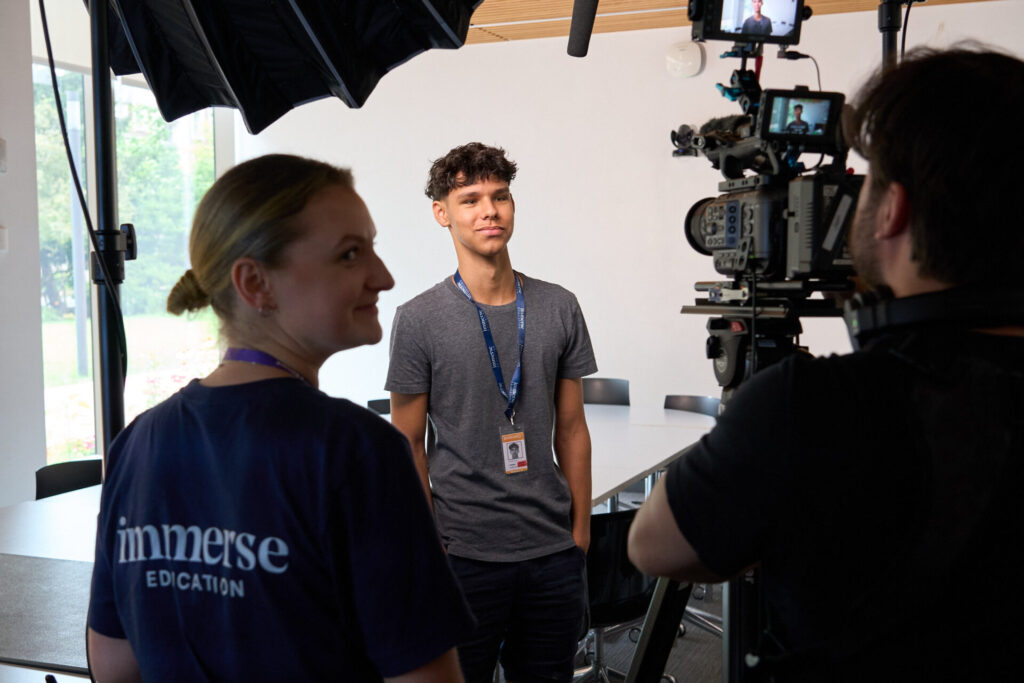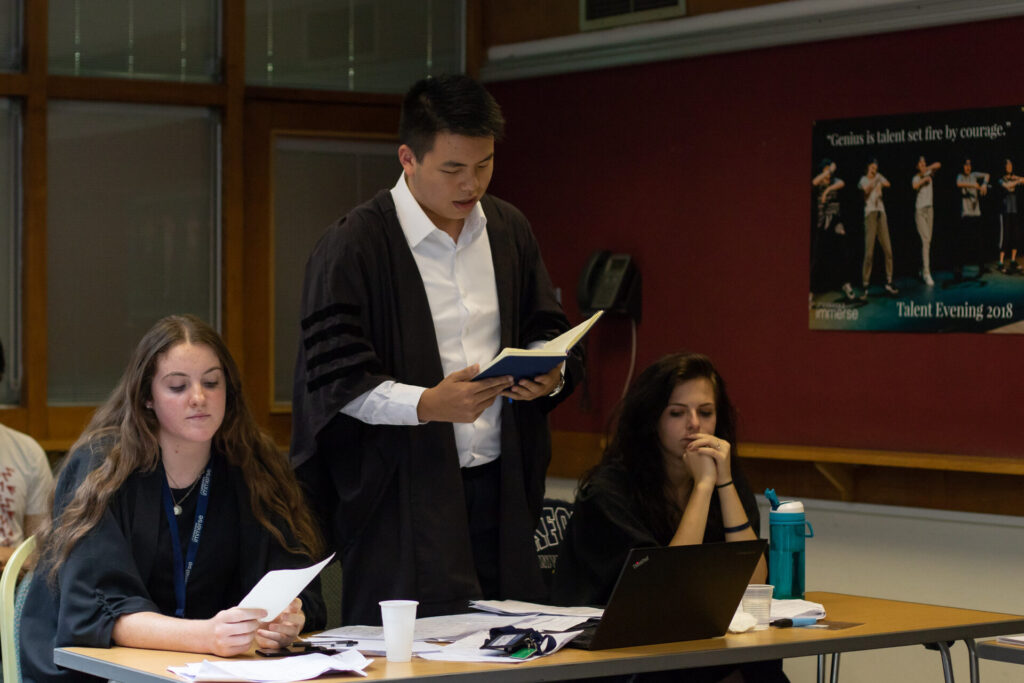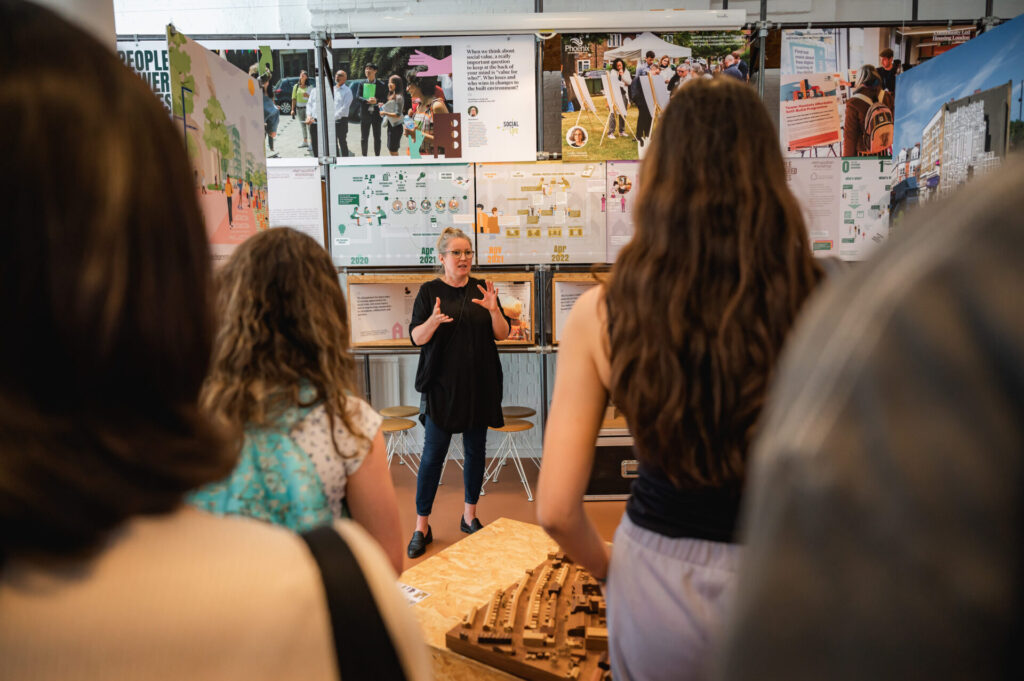Creative writing is more than just stringing words together; it’s about telling stories, crafting compelling narratives, and weaving imagination into text. A career in creative writing offers the chance to turn your love for words into a fulfilling profession. Whether you aspire to be an author, screenwriter, or content creator, this field is filled with endless possibilities. Here, we’ll explore what careers in creative writing entail, the opportunities available, and the skills needed to thrive in this competitive yet rewarding industry.
If you want to develop as a creative writer, our Creative Writing summer schools – which take place online as well as in Sydney, Oxford and Cambridge – are the perfect place to hone your craft whilst still in high school. Or, there’s also the Creative Writing Online Research Programme with a multitude of subjects to choose from.
What Does a Career in Creative Writing Entail?
Careers in creative writing involves using language creatively to inform, entertain, or engage audiences. Unlike technical writing or journalism, which prioritize delivering information concisely, creative writing focuses on storytelling and expression. Careers in this field typically demand originality, the ability to evoke emotion, and a mastery of language that resonates with readers.
Some creative writing professionals work on their own projects, such as novels or poetry collections, while others collaborate with teams to write scripts, develop marketing content, or create video game storylines. Every career path within this field is united by one goal—to connect with audiences through words.
Exploring Career Opportunities in Creative Writing
1. Author or Novelist
Writing novels is one of the most traditional and respected paths in creative writing. Authors can explore self-publishing platforms like Amazon Kindle Direct Publishing, where they can retain more control and earn up to 70% royalties on their books. Additionally, authors can monetise their works by securing traditional publishing deals, partnering with literary agents, or participating in book events and speaking engagements.
2. Screenwriter
Crafting scripts for movies, TV shows, or web series is a dynamic and lucrative field. Aspiring screenwriters can earn by pitching ideas to production houses or working as freelancers. Competitions such as the Nichols Fellowship or Austin Film Festival also provide exposure and financial opportunities. Networking with directors and producers can often lead to long-term collaborations.
3. Poet
Poetry may not seem commercially successful at first glance, but poets can leverage creative monetisation techniques. Hosting poetry readings or performances at local events or coffee shops is one way to generate income. Additionally, publishing poetry anthologies on platforms like Patreon or selling collections through independent publishers can bring financial returns. Launching online workshops to teach budding poets is another viable option.
4. Content Writer and Copywriter
This role is one of the most accessible and immediately monetizable avenues in creative writing. Writers in this space often work for businesses that need website content, blog posts, product descriptions, and marketing copy. Freelancing platforms or signing contracts with digital agencies can help you secure a steady income.
5. Video Game or Interactive Narrative Writer
The gaming industry presents an exciting opportunity for creative writers specialising in storytelling. Writers can start by working with indie game developers on platforms such as Itch.io or joining forums like the Game Dev subreddit to network. Establishing a robust portfolio through freelance work is key, as it demonstrates your ability to craft intricate in-game narratives. Collaborative writing for browser games or virtual reality experiences offers additional earning potential.
6. Ghostwriter
Ghostwriting allows writers to earn a consistent income by creating work for others, such as autobiographies, speeches, or blog content. While ghostwriters may not claim public credit, they frequently charge competitive rates, making it an in-demand choice. Establishing long-term client relationships can ensure financial stability in this role.
7. Creative Writing Educator
Teaching creative writing offers both fulfilment and earning possibilities. Beyond traditional classroom roles, educators can create online courses or host paid webinars to reach a global audience. Publishing guides, textbooks, or educational materials further expands your income streams. Many creative writing educators also organise local workshops for amateur writers eager to hone their craft.
From traditional publishing to modern digital platforms, the career options in creative writing are as diverse as the stories writers create.
Responsibilities of a Creative Writer
A career in creative writing involves more than just writing creatively. While the specific responsibilities vary depending on the role, here are some common tasks professionals in this field handle:
- Idea Generation: Creative writers constantly brainstorm original ideas for stories, characters, or campaigns.
- Research and Development: Writers often research historical events, scientific concepts, or cultural norms to create believable and compelling narratives.
- Drafting and Revision: Crafting a rough draft is just the beginning. Writers refine their work through editing and feedback to ensure it meets the desired standard.
- Collaboration: Depending on the role, creative writers may collaborate with editors, graphic designers, or marketing teams to bring their projects to life.
- Meeting Deadlines: Whether it’s completing a novel manuscript or delivering content for a website, creative writing professionals often juggle tight deadlines.
- Addressing Audience Needs: Writers must tailor their work to evoke specific emotions or reactions from their audience, whether that’s a laugh, a tear, or a call to action.
Successful creative writing specialists fuse skill, imagination, and practicality to craft memorable texts, keeping their audience engaged at every step.
Qualifications and Skills Needed for a Creative Writing Career
While having a formal degree in English, literature, or creative writing can be helpful, it’s not always required. Many successful creative writers are self-taught and rely on their natural talent, discipline, and ability to hone their craft. Essential qualifications and skills include:
- Imagination and Creativity: The ability to think outside the box is a must.
- Strong Command of Language: A solid grasp of grammar, vocabulary, and style is critical.
- Editing and Proofreading Skills: Revisions are often where the real magic happens.
- Adaptability: The ability to write for different tones, audiences, and platforms is indispensable.
- Persistence and Self-Motivation: Writing professionally requires dedication and sometimes working through rejection.
Alternative Pathways to Becoming a Writer
While degrees in Creative Writing, English, and Communications are a common starting point, they’re not the only way to build a writing career. Many writers begin by creating a strong portfolio of work. Starting a blog showcases your voice and writing style to potential clients. Platforms like Medium allow you to publish content and build a following.
Contributing to online platforms or entering writing contests provides immediate exposure and feedback. Networking in local or online writing communities, such as writers’ groups or forums, can lead to partnership opportunities. Explore freelancing platforms like Upwork to take on small writing projects that build experience and credibility. A well-curated portfolio opens doors and demonstrates your ability to potential publishers or employers.
Join the Immerse Education 2025 Essay Competition
Follow the instructions to write and submit your best essay for a chance to be awarded a 100% scholarship.

Building Your Portfolio
To land a creative writing job, you’ll often need a portfolio showcasing your best work. Strong portfolios typically include a mix of professional projects (if applicable) and personal pieces that highlight your range as a writer. Whether it’s a one-act play, a short story, or a series of blog posts, your portfolio should reflect your unique voice and abilities. Tailor your portfolio to the job you’re applying for; for example, include ad copy for marketing positions or story-driven content for video game writing roles. Use online platforms such as Behance or create a personal website to showcase your work. Having an easily accessible, professional-looking portfolio demonstrates your dedication and makes it easier for potential employers or clients to see your strengths.
Practical Experience
Internships, freelancing, or self-publishing can offer invaluable experience when starting out. These opportunities help you refine your craft, build professional connections, and learn the inner workings of the industry. Internships allow you to work under mentors, offering guidance that can shape your growth. Freelancing gives you the freedom to take on diverse projects that build your credibility. Both avenues frequently lead to long-term opportunities, such as full-time roles or repeat clients. Additionally, networking during these experiences is key. Attend writing workshops, participate in online forums, or connect with professionals on LinkedIn. Building a network not only enhances learning but also opens doors to collaborations and job referrals, setting a strong foundation for your creative writing career. Whilst still in school, you can attend creative writing online courses designed to provide an intensive fortnight of upskilling and perfecting your authorial voice.
Wrapping It Up: Is Creative Writing the Right Path for You?
Pursuing careers in creative writing requires passion, patience, and persistence. It’s a field full of challenges, from writer’s block to fierce competition, but it’s also immensely rewarding for those who have a genuine love for storytelling.
If you’re someone who can’t resist crafting a good story, loves experimenting with language, or finds joy in captivating an audience, creative writing might just be your calling. With opportunities ranging from writing novels to engaging in digital storytelling, the possibilities for growth and self-expression are limitless.
The key to success lies in consistent practice, a willingness to keep learning, and a commitment to understanding what moves your readers. Whatever path you choose, a career in creative writing lets you leave your mark through the power of words.































